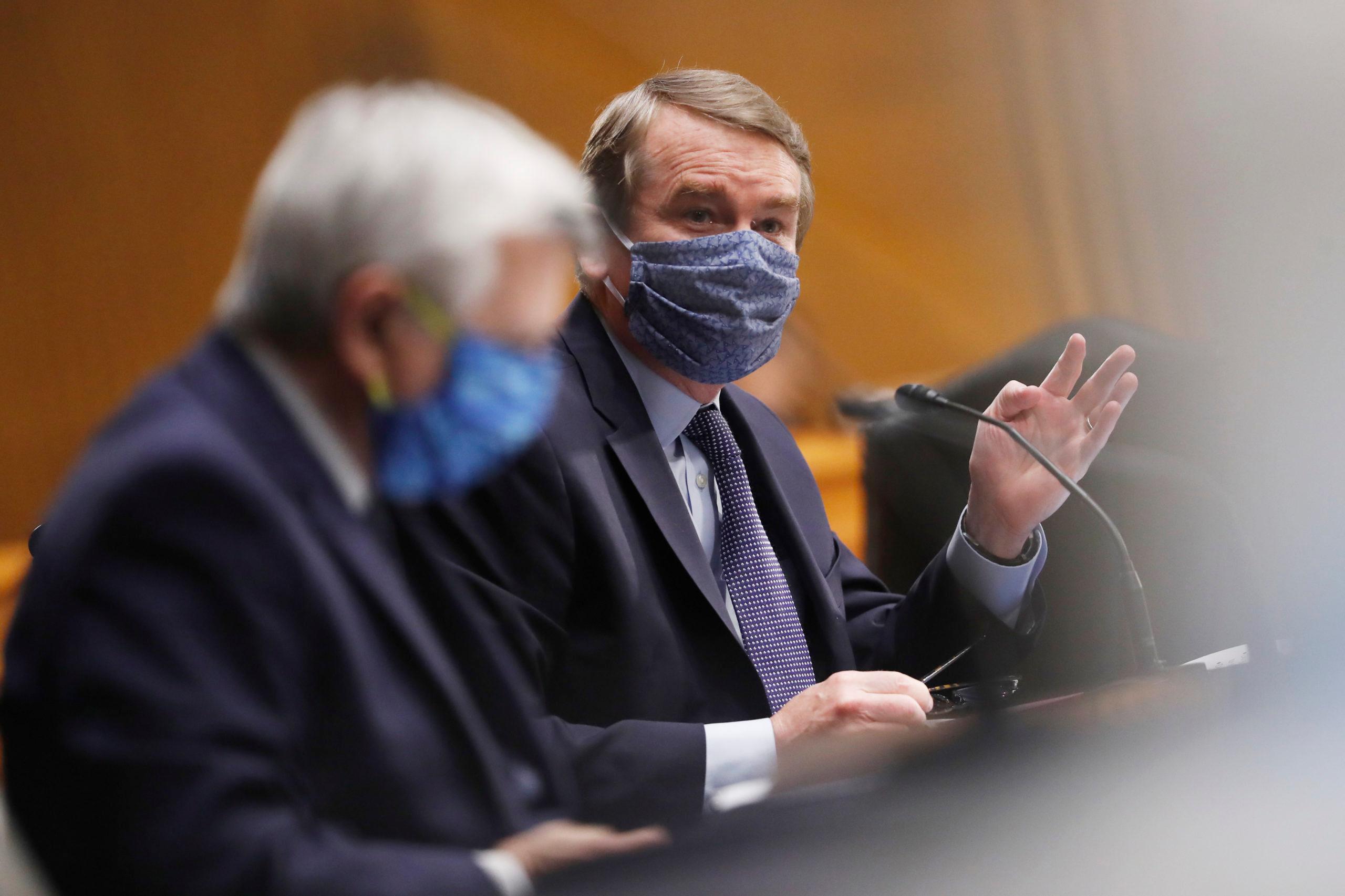
Sen. Michael Bennet blasted President Donald Trump Thursday over his refusal to commit to a peaceful transition if he loses in November. The Colorado Democrat also continued to condemn the Senate’s Republican leadership for pushing a fast vote to fill the vacancy on the Supreme Court.
In the White House briefing room Wednesday, Trump said “we’re going to have to see what happens” in response to a question about whether he would agree to a peaceful transition of power. The president’s answer rankled Bennet.
“In the history of this country we have never had a president, a Republican or a Democrat, who’s saying the kind of things that Donald Trump is saying at this point,” he said. “He’s become unhinged.”
Earlier on the same day, Trump predicted the election will ultimately be decided in the U.S. Supreme Court, giving that as part of his justification for a vote on a replacement for Justice Ruth Bader Ginsburg. The 27-year jurist on the high court died Sept. 18 of cancer complications.
“We don’t want a situation where the court is making that decision,” Bennet said in an interview with CPR’s Colorado Matters. “So the best thing that we can do is vote him out of office and do it in a way that’s convincing, and I think his record is one that has earned that.”
In an appeal to “fair-minded people of every party” both in Colorado and across the country, Bennet hoped they would support former VP Joe Biden, “who actually believes in the rule of law and believes in our democracy. That seems to me like a threshold question for somebody to be the president and I think Donald Trump has disqualified himself.”
If a new justice is approved before the election and the court has to rule on a disputed contest, he or she, in Bennet’s opinion, “should recuse themselves.”
While the state’s senior senator opposes a vote on filling the Supreme Court seat before the election, the Republican junior senator, Cory Gardner said he’d vote for a “qualified” Trump nominee.
"When a President exercises constitutional authority to nominate a judge for the Supreme Court vacancy, the Senate must decide how to best fulfill its constitutional duty of advice and consent," said Gardner’s statement earlier in the week. "I have and will continue to support judicial nominees who will protect our Constitution, not legislate from the bench, and uphold the law.”
As of the time this story was published, Gardner had not responded to a request to appear on Colorado Matters to discuss the Supreme Court controversy.
Angered by Trump’s push for a quick vote, some Democrats have said if the party regains the majority in the Senate, and Biden is elected, they’ll push to increase the number of justices — a practice known as “packing” the court.
When asked, Bennet refused to take a stand on that idea.
“Right now, the number one job before us is winning this election and then we're going to have to have a discussion about all kinds of things but until then it's pointless to have the conversation.”
The struggle over Supreme Court nominees began almost a decade ago, in 2013, when Democrats invoked the so-called “nuclear option” and lowered the threshold for approval of federal judges, other than those on the Supreme Court, to a simple majority. In 2016, Republicans blocked President Barack Obama’s nomination of Merrick Garland to the Supreme Court, arguing that it came too close to the election — an argument ignored now amid cries of hypocrisy. Senate Republicans then paved the way to confirm Coloradan Neil Gorsuch to the court in 2017 by eliminating the filibuster and changing the threshold to 51 votes.
Bennet lamented that both parties are complicit in the destruction of the Senate’s advise and consent responsibilities for the courts. He then turned his ire on the Senate Majority Leader.
“What Mitch McConnell has done here is so reprehensible because he did not allow Merrick Garland to come for a vote saying that the people had to decide, and that was 340 days or so before an election,” Bennet said. “Here we’re 40 days before an election and he's pushing through the Supreme Court (nomination), so it's exactly the opposite of what he did (in 2016). And I would hope Democrats wouldn't do the same.”








